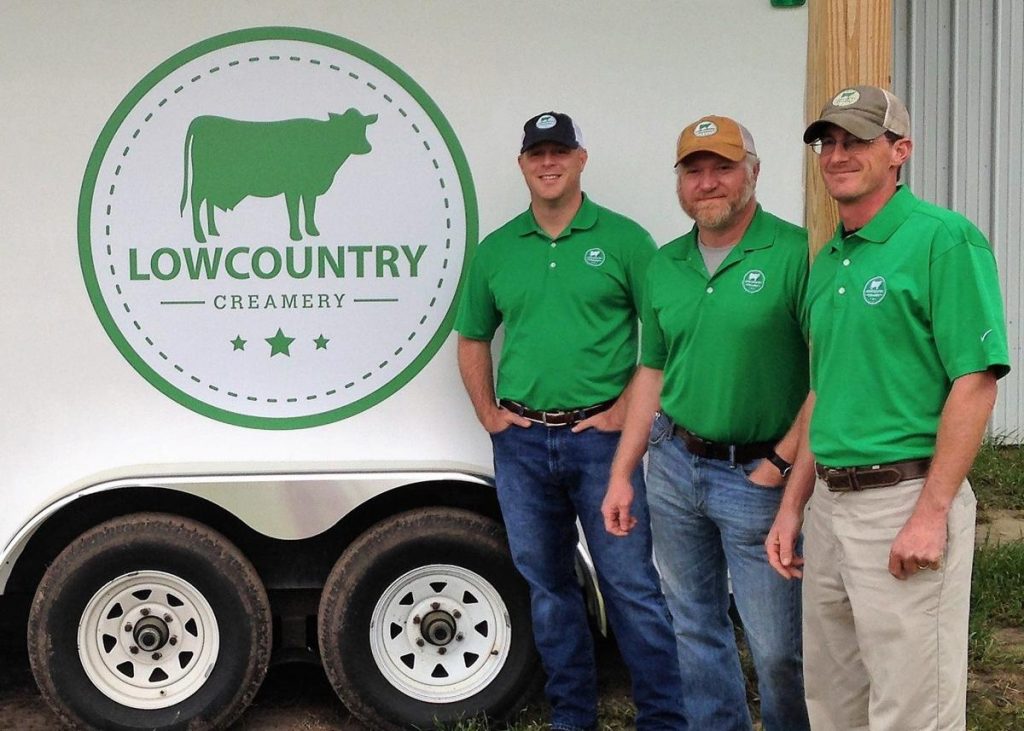Entrepreneurs pitched their businesses to a panel of judges who selected seven to share $125,000 in funding based on their business plans, presentations and demonstrated history of business success.
Orangeburg County’s Lowcountry Creamery, a value-added dairy operation located in Bowman, was awarded funding to provide their milk and yogurt direct to consumers.
Kara and Matthew Rutter of Project Victory Gardens in Aiken County will expand their agritherapy and agricultural education program for military veterans, including building a teaching kitchen.
Ben Crawford and Rebecca Goldberg of Woodland Valley Mushrooms in Aiken County plan to expand their Aiken-area gourmet mushroom operation.
The brother-sister team behind Twin Creeks Lavender in Anderson County will build a drying and production barn to ensure expanded crop production at their Williamston lavender farm.
York County’s Nance Farm Creamery, operated by a 12th-generation farm family, was awarded funding to help market its dairy products locally.
Alicia Holbrook intends to expand remote educational offerings at her alpaca farm Carolina Pride Pastures in Newberry County.
Kristen Beigay of Pickens County worm farm Earthen Organics intends to purchase new equipment to expand her family’s organic worm castings business.
SCDA founded ACRE in 2018 to help identify and nurture new ideas and businesses in the Palmetto State’s agribusiness sector. In addition to the Advanced Entrepreneurship track whose 2020 awardees are announced here, ACRE offers a curriculum program each fall to train and mentor beginning agricultural entrepreneurs.
“The future of South Carolina agriculture depends on innovation – we must grow and develop to survive,” said Commissioner of Agriculture Hugh Weathers. “I hope these seven entrepreneurs inspire continued development and innovation across South Carolina agribusiness.”
About Lowcountry Creamery
It was shortly after their respective graduations from Clemson University that Patrick Myers and Kent Whetsell first considered the idea of having their own dairy.
They were working different jobs in the dairy industry and wanted to go into business for themselves. At one time, Patrick’s family had an operational family dairy farm, and in 2010 on the same 50 acres of land at Bowman, and thus the dairy business began.
Patrick oversaw the business side of the dairy operation, while Kent handled the responsibility of herd management, including the day-to-day milking operations.
After a few years, the small dairy was at a crossroads. The tough economic climate of the industry required expansion into a larger dairy or adding value to the milk they were producing. They knew how to expand the dairy, but were intrigued by the alternative of keeping the herd small where the cows are individuals and not just numbers.
After conversations with many people, Patrick and Kent realized the unmet demand for value-added artisan dairy products in the area. Consumers frequently asked about local dairy products, especially yogurts, artisanal cheeses, and flavored butters and they recognized that individuals as well as restaurants and chefs desire locally produced, small batch, minimally processed dairy products, but had very few options.
As Patrick and Kent looked into the possibility of supplying products to meet this type of demand, their longtime friend and fellow Clemson alum, Josh Brooks, joined them and they began discussing the business and financing aspects of their idea.
After winning a USDA Value-Added Producer Planning Grant, they dedicated themselves to making our dream a reality and Lowcountry Creamery was born. Experimenting began in early 2015 and launched sales in May of that year.
Patrick, Kent, and Josh desire to impact their local community not only through the sale of quality dairy products, but also by creating jobs, educating and leading the way in linking small farmers to opportunities available through other entities.













